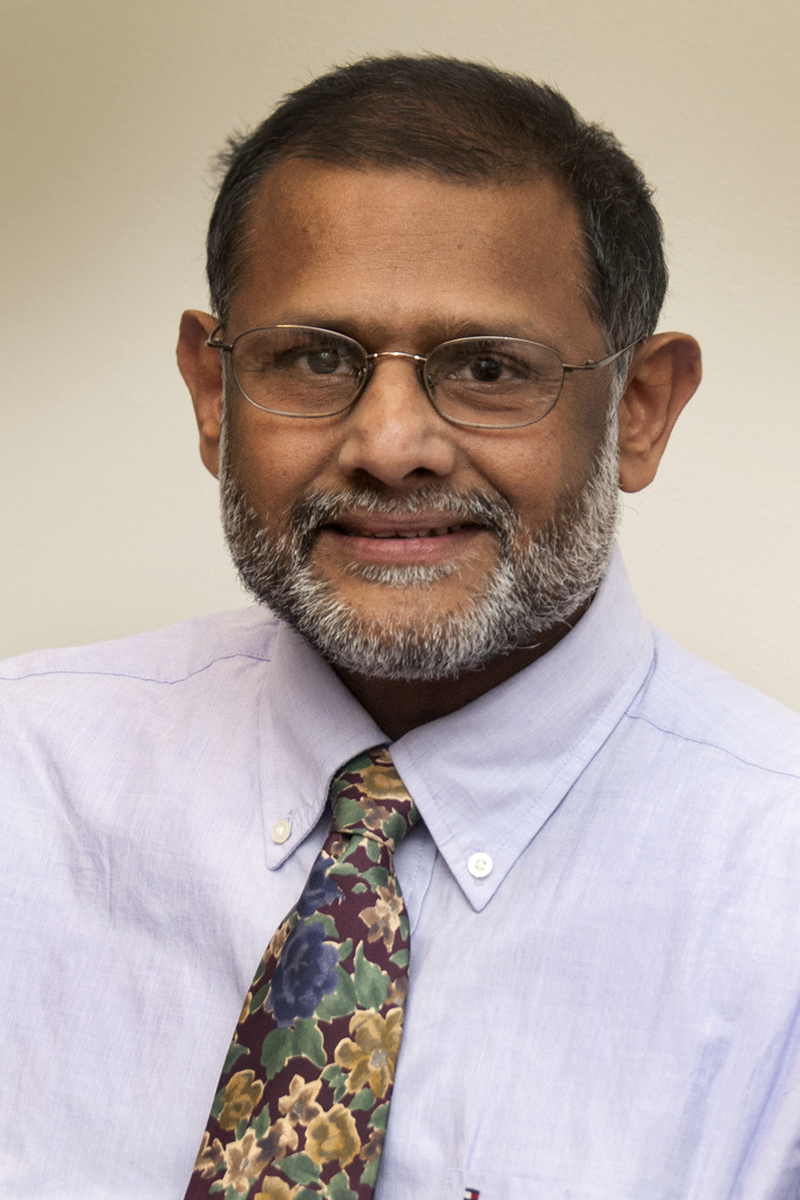Prof. Keshab K. Parhi
Erwin A. Kelen Chair in Electrical Engineering
Distinguished McKnight University Professor
Recent News
Prof. Parhi Inducted to National Academy of Inventors (2020) (see also UMN News (Dec. 8, 2020))
Prof. Parhi Elected as Fellow of the Association for Computing Machinery (ACM) (2020)
Prof. Parhi to receive IEEE Circuits and Systems Society John Choma Education Award (2021)
Prof. Parhi Elected Fellow of American Association for the Advancement of Science (AAAS) (2017) (see also UMN News) (November 17, 2017)
Biography
Keshab K. Parhi received the B.Tech. (Honors) degree from the Indian Institute of Technology, Kharagpur (India) in 1982 in Electrical Engineering, the M.S. degree from the University of Pennsylvania in 1984 in Electrical and System Engineering, and the Ph.D. degree from the University of California, Berkeley in 1988 in Electrical Engineering and Computer Sciences.
Dr. Parhi has been with the Department of Electrical & Computer Engineering at the University of Minnesota, Minneapolis, since 1988, where he was an Assistant Professor from Oct. 1988-June 1992, Associate Professor from July 1992-June 1995, and has been a Professor since July 1995. Since July 2022, he holds the inaugural Erwin A. Kelen Chair in Electrical Engineering. Since 2000, He has held the permanent title of "Distinguished McKnight University Professor" awarded by the Graduate School of the University. During July 1997 - June 2022, he held the title of "Edgar F. Johnson Professor of Electronic Communication." During July 2008 - August 2011, he served as the Director of Graduate Studies of the Electrical Engineering program. He has held short term positions in several industries such as IBM T.J. Watson Research Center (Yorktown Heights, NY), AT&T Bell Laboratories (Holmdel, NJ), NEC Corporation (Miyamae-Ku, Kawasaki, Japan), where he was a National Science Foundation Japan Fellow, Broadcom Corp., Irvine, CA, and Medtronic Corp., Minneapolis, MN. He has been a visiting Professor at Delft University (The Netherlands), Lund University (Sweden), Fudan University (Shanghai, China), and Stanford University. During 2005-2012, he served as Founder and Chief Scientist of Leanics Corp.
Dr. Parhi is widely recognized for his work on high-level transformations of iterative data-flow computations, for developing a formal theory of computing for design of digital signal processing systems, and for contributions to multi-gigabit transceivers for wired systems such as ethernet on copper and fiber and for backplanes, and for wireless communications systems. These high-speed and low-power transceiver integrated circuit chips form the backbone of the internet. His research addresses VLSI architecture design and implementation of signal processing, artificial intelligence and machine learning, communications, biomedical systems, error control coders and cryptography architectures, high-speed transceivers, stochastic computing, secure computing, and molecular/DNA computing. He is also working on intelligent classification of biomedical signals and images, for applications such as seizure prediction and detection, schizophrenia classification, biomarkers for mental disorders, brain connectivity, and screening of fundus and optical coherence tomography (OCT) images for ophthalmic abnormalities. He has published over 725 papers (out of which 16 have won best paper or best student paper awards), is inventor or coinventor of 36 issued US Patents, has authored the text book VLSI Digital Signal Processing Systems: Design and Implementation (Wiley, 1999), and is the co-editor (with Takao Nishitani) of the reference book Digital Signal Processing for Multimedia Systems (CRC Press, March 1999). He has coauthored the research monographs Pipelined Adaptive Digital Filters (with Naresh Shanbhag, 1994), Digit-Serial Computation (with Richard Hartley, 1995) and Pipelined Lattice and Wave Digital Recursive Filters (with Jin-Gyun Chung, 1996), all published by Springer. He has advised 52 graduated Ph.D. students, 65+ MSECE Projects/Theses students, and has supervised 22 Pre- and Post-doctoral visitors.
Dr. Parhi is the recipient of numerous awards including the 2017 Mac Van Valkenburg award from the IEEE Circuits and Systems Society, 2013 Distinguished Alumnus Award from IIT, Kharagpur, India, 2013 Graduate/Professional Teaching Award from the University of Minnesota, 2012 Charles A. Desoer Technical Achievement award from the IEEE Circuits and Systems Society, the 2004 F. E. Terman award from the American Society of Engineering Education, the 2003 IEEE Kiyo Tomiyasu Technical Field Award, the 2001 IEEE W. R. G. Baker prize paper award, and a Golden Jubilee medal from the IEEE Circuits and Systems Society in 1999. He has served on the editorial boards of the IEEE TRANSACTIONS ON CIRCUITS AND SYSTEMS — PART I and PART II, VLSI Systems, Signal Processing, Signal Processing Letters,and Signal Processing Magazine, and served as the Editor-in-Chief of the IEEE TRANSACTIONS ON CIRCUITS AND SYSTEMS — PART I (2004-2005 term), and currently serves as the Editor-in-Chief of the IEEE Circuits and Systems Magazine. He also serves on the Editorial Board of the Springer Journal of Signal Processing Systems (JSPS). He has served on technical program committees of IEEE or ACM Conferences such as ASAP, ICASSP, ISCAS, HOST, Asilomar Conf. Signals, Systems and Computers, Computer Arithmetic Symp., Great Lakes Symp. on VLSI, workshop on VLSI Signal Processing, SiPS, Workshop on VLSI in Communications, and of ASP-DAC, IECS and IWISP conferences. He has served as technical program cochair of the 1995 IEEE VLSI Signal Processing workshop and the 1996 ASAP conference, and as the general chair of the 2002 IEEE Workshop on Signal Processing Systems. He was a distinguished lecturer for the IEEE Circuits and Systems society during 1996-1998, and during 2019-21. He served as an elected member of the Board of Governors of the IEEE Circuits and Systems society from 2005 to 2007. He is a Fellow of IEEE (1996), tthe Association for Computing Machinery (ACM) (2020), the American Institute for Medical and Biological Engineering (AIMBE) (2022), he American Association for the Advancement of Science (AAAS) (2017), and the National Academy of Inventors (NAI) (2020).
